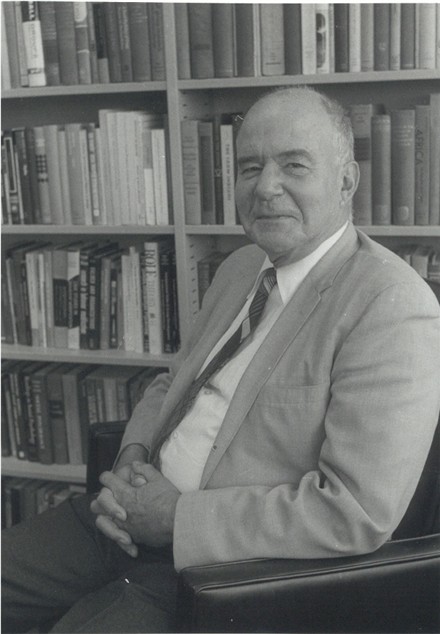
The Exchange Theory(3) of George Homans (see also)
Credits, references, and bibliography

The Exchange Theory(3)
of George Homans
(see also)
Operant Conditioning:
Roots in Behaviorism
Basic Propositions
"George Homans (1910-1989) developed an exchange theory of everyday behavior that grounded itself in the propositions of behaviorist psychology. Homans was a psychological reductionist, which means that he believed that sociological phenomena could be explained through the more basic principles of psychology. In particular he drew on the behaviorist theory of operant conditioning to argue that individual behaviors are learned when particular behaviors are reinforced through interactions with the environment. Psychological behaviorists, such as B. F. Skinner (1904-1990), studied pigeons or rats in interaction with their environment. In contrast to Skinner's study of individual behavior, Homans was interested in what is called reciprocal behavior. He studied the way that human beings interacted with one another and, in particular, the way that the activities of two or more people reinforce or punish the behaviors of others. Despite his interest in interpersonal interaction, Homans believed that sociology did not need to invent new theories to understand social interaction. Rather, by extending basic behaviorist propositions, he argued that he could explain all social behavior. These propositions underlined the importance of concepts such as response generalization, stimulus discrimination, reward, punishment, cost, and profit to the understanding of everyday behavior. In short, Homan's theory views the actor as a rational profit-seeker who is conditioned to seek particular rewards over others."(1)
Helpful links:
JSTOR Articles

James
S. Coleman The
basic model:
"Foundations of Social Theory "James Coleman (1926-1995) was very influential in the development of rational choice theory. Not unlike Homans's exchange theory, Coleman's rational choice views the individual as a rational profit seeker. However, where Homans's theory is rooted in behaviorist psychology, Coleman's theory is rooted in neoclassical economics. Rational choice theory assumes that people act purposively in order to maximize individual goals. Actors' efforts to achieve these ends are constrained by two factors. First, some actors have greater access to resources than others. As such, individual behavior is based on the calculations that people make as they try to balance their access to resources against the opportunity costs that are involved in trying to realize certain ends over others. Second, individual action is constrained by the social institutions that restrict the choices that people can make in achieving their ends. These choices are also shaped by the kinds of information to which individual actors have access. Coleman argues that rational choice theory provides a potential bridge between microsocial behaviors and macrosocial structures. Although his focus on the choices made by individual actors makes Coleman a methodological individualist, Coleman argues that the aggregate behavior of individual actors leads to the emergence of systems of action, or social structures. In other words, the individual effort to maximize personal gains creates social structures that condition the kinds of choices individual actors are able to make."(1)
Useful Links:
Works Cited
1.
Much of this page comes from the "Instructor's Manual" to accompany Contemporary
Sociological Theory and Its Classical Roots: The Basics, Second Edition,
George Ritzer, Mcgraw-Hill, 2007. The Instructor's Manual was prepared by James
Murphy, University of Maryland, College Park and Todd Stillman, Fayetteville
State University. These excerpts are from chapter 6.
2. Ritzer, George. 2010/2013. Contemporary Sociological Theory
and Its Classical Roots: The Basics. 3rd/4th ed. St. Louis: McGraw-Hill.
3. Student Presentation from Iowa State University, http://www.soc.iastate.edu/sapp/soc401gp.html,
Spring 2008 Sociology 401, taught by: Dr. Steve Sapp, accessed 10/15/08)
![]()
Unless otherwise noted, all pages within the web site http://www.umsl.edu/~keelr/ ©2015 by
Robert O. Keel.
Click here to Report Copyright Problems